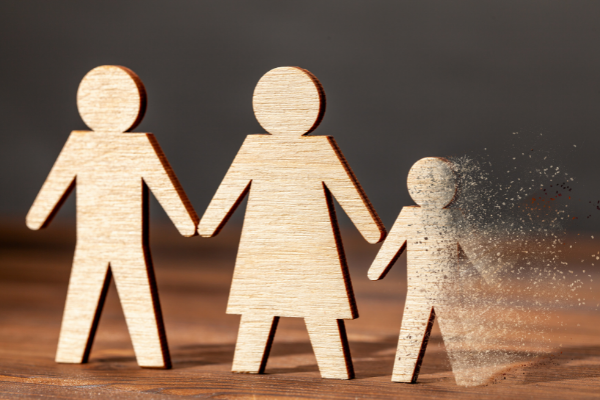
Children Are Complete Losers in Family Violence!
- Category: Gender
- Date 30-04-2006
- 626 views
An eight-month boy Johnson Meskack dropped from his mother’s back, fell headlong to the ground and died instantly! This was during a clash between her parents, whereby Hezron Jackson of Ntyuka village in Dodoma rural district wanted to exercise control over his wife’s escapades by using excessive force.
His wife had walked out of the home, towards a nearby local brew club, where she said she would meet her mother. Hezron, anxious to demonstrate his supremacy, tried to intercept her and a pungent brawl ensued; the couple came to blows and tussled to subdue each other whereupon the innocent child lost his life!! The mother was immediately taken into police custody whereas the man took to his heels. (See: Baby falls from its mother, dies “The Citizen” 18th April 2006, page 6).
When two elephants fight, the grass suffers, and when adults cannot resolve their differences amicably, the young suffer. The case of Hezron and his wife is not a new-fangled affair in this society, but fighting in the family or community is potentially a dangerous practice to society and more so to children.
The aforesaid Johnson Meskack is only one of the few reported cases of children who get caught up in family feuds and lose their lives. Others are killed before they are born as a man pounding his pregnant wife may lead to miscarriage that endangers both the mother and the foetus.
On the luckiest occasion that a family fight does not result into death of the child, research shows that children from violent homes are twice likely to be abused by their mother’s assailant or by the assaulted mother herself. Being the weaker persons, children often become easy target for displacement of anger and frustration by their warring carers – a battered woman may neglect her child because she is annoyed with the child’s father.
What’s more, a child growing up in a vicious family acquires poor conflict resolution skills, and is likely to be violent to his future partner. Children born of hostile parents learn to be aggressive and confrontational in their later life at home, work and in society. They would find it difficult to form stable and peaceful relationships with their future partners and are essentially a recipe for an unstable society. They might develop poor negotiation skills in business and social relationships as well as disoriented personal equanimity.
It is also said that boys from violent homes will learn to beat their own wives whereas girls from such homes would learn from their mothers’ how to become silent victims. Sometimes, poor performance in school results from abusive family backgrounds, with children becoming withdrawn, guilty and developing communication problems.
It is easy for such children to become generally unjust, vengeful and oppressive against the weaker members; workers, children, disabled persons, and female family members. Children may grow to abuse their authority once they are in positions of responsibility, because the family is the basic school, and children are the best learners. Whenever one sneers at their partner in disapproval, the child watches either in disgust or admiration.
Family violence also manifests through quarrelling and insults, which too bears dire effects on the child’s emotional and social temperament. He might pick such antisocial habits and grow to become abusive, foulmouthed and generally immoral.
violent couples very often end up divorcing each other and this chips away at a child’s prospect of a stable character guaranteed by a stable home, where parents live together in harmony. The many street children in every town around us are a testimony of poor domestic relations.
Domestic violence refers to the physical, sexual and psychological abuse of a woman by the man or the same abuse of a man by the woman. Yet the term “family” suggests safety, security, warmth, and happiness; a place where spouses and their children coexist in harmony, looking happily into the future. Why make it unsafe for children?
By Venansio Ahabwe
Source: Peering Eye, Sunday Citizen
